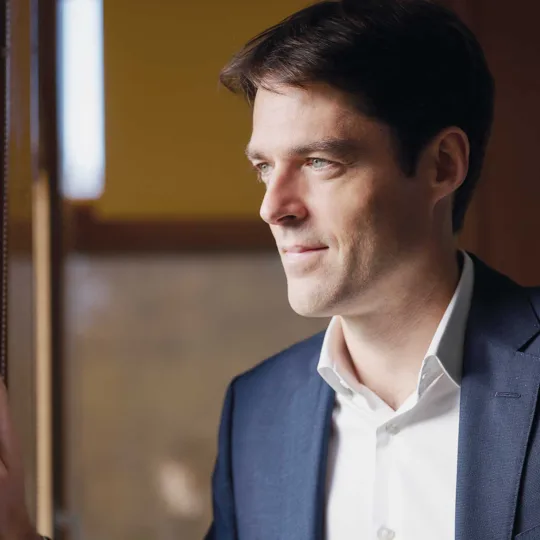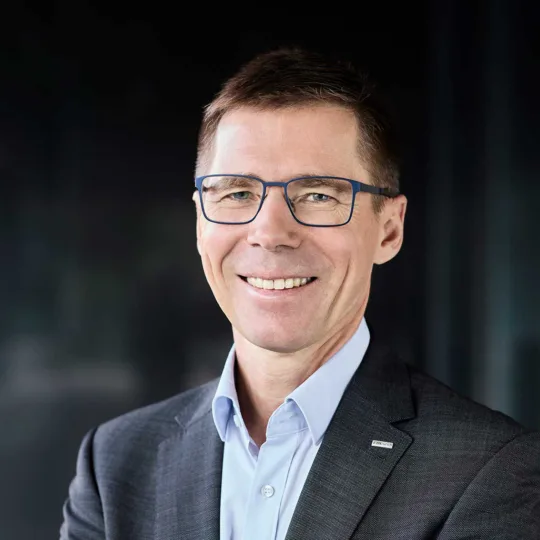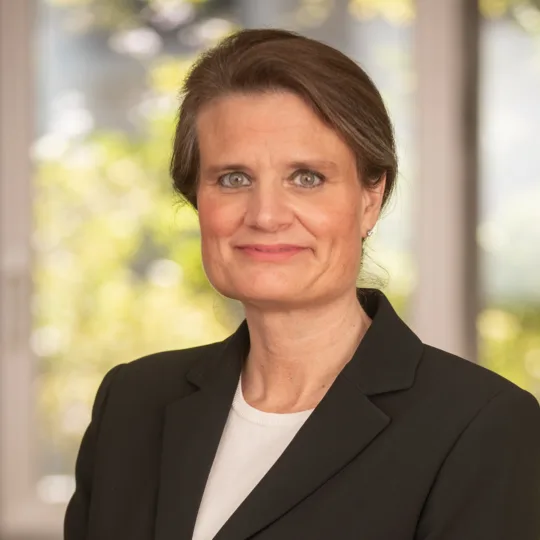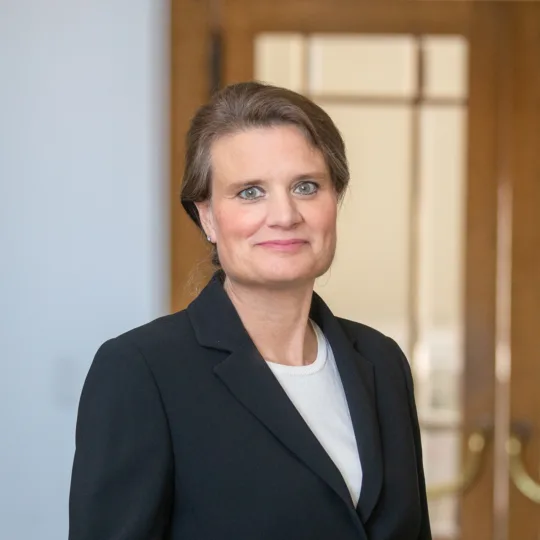Growing importance of sustainability within Swiss higher education sector
In 2021, the Swiss branch of the international NGO World Wide Fund for Nature (WWF) published a report on the importance of sustainability at Swiss higher education institutions. WWF Switzerland’s 2021 sustainability study shows that Swiss higher education institutions give strategic importance to sustainability in their teaching, research and service activities.
The Federal Council Dispatch on the Promotion of Education, Research and Innovation for 2021-2024 lists sustainability as one of the three most important cross-cutting topics, the other two being digitalisation and equal opportunities. Moreover, sustainability is the common theme woven in the UN’s Agenda 2030 and its 17 Sustainable Development Goals. In 2017 and 2019, WWF Switzerland decided to find out how Swiss higher education institutions (HEIs) address the multiple facets of sustainability in their study programmes and research activities. The latest study for 2021 was conducted in partnership with the Swiss research and consultancy firm econcept and covers a total of 28 Swiss HEIs.
Developments in the Swiss higher education sector
Although the coverage of sustainability at Swiss HEIs is a rather recent phenomenon, most Swiss HEIs nevertheless have already taken steps to include sustainability concepts in their activities. The 2021 study conducted by WWF Switzerland shows that the positive trend observed at Swiss HEIs in the 2019 and 2021 studies continues unabated. Significant changes can be seen particularly at strategic management level. For example, most universities have developed a sustainability strategy that includes a range of measures.
Different resources, different tempo
Swiss tier-one universities (i.e. cantonal universities and Switzerland's two federal institutes of technology, ETH in Zurich and EPFL in Lausanne) have covered sustainability for a longer period of time and accordingly hold more prominent positions in WWF Switzerland’s ranking list than smaller universities of applied sciences (UAS). The latter have fewer human and financial resources at their disposal to implement sustainability strategies. However, the smaller size of UAS can also be an advantage. UAS have greater organisational flexibility and are able to implement new processes more readily. Of all the Swiss HEIs surveyed, Swiss UAS have made the most progress since 2019.
Swiss universities of teacher education (UTEs) received the lowest scores in the ranking list. Nevertheless, many UTEs reported that they are now devoting greater attention to sustainability as well. According to WWF Switzerland, Swiss UTEs are very much aware of the importance of sustainability.
Sustainability within the ERI sector
Sustainability is an important cross-cutting theme in ERI policy for the years 2021-2024 and beyond. It features prominently in the current multi-year programmes of swissuniversities, the ETH Board, the Swiss National Science Foundation and Innosuisse, among others. Sustainability is also the focus of fundamental research conducted by ETH Domain institutions. In addition, federal funding has been awarded under the Higher Education Act (HEdA) for such projects as 'Sustainability at Swiss Universities - Student Projects (U Change)'. A follow-up project is being planned for the period 2025-2028. Last but not least, sustainability training is now considered an integral part of ongoing professional development. SERI has produced a guide on sustainability for professional organisations and member companies to assist them in including sustainability issues in upper-secondary and tertiary-level training programmes.
Recommendations for greater coverage of sustainability within the Swiss higher education sector
Although a great deal of commitment can be seen in all three types of Swiss higher education institution (T1, UAS and UTE), none yet play a 'pioneering' role (highest category in the report). Admittedly, no fewer than ten HEIs (seven cantonal universities and three universities of applied sciences) have already been awarded the label 'ambitious'.
WWF Switzerland has identified a certain lack of progress with regard to established goals and measures: for example, over half of the HEIs surveyed have yet to reach a final decision on complete decarbonisation of their activities.
WWF Switzerland has formulated three overarching recommendations for all stakeholders within the Swiss higher education sector. This includes federal and cantonal agencies, intercantonal bodies, e.g. Swiss Conference of Higher Education Institutions and the Swiss Conference of Rectors of Higher Education Institutions (swissuniversities) as well as individual heads of universities, faculties, departments and institutes:
- Actions should be guided by a strong commitment to sustainability, which respects the limited availability of planetary resources and sees the environment as more than just an economic resource.
- Efforts should be made to cultivate and develop a broad understanding of sustainability as a cross-cutting theme affecting the environment, society, economy, culture, technology. Consideration should be given to local to global perspectives as well as to present and future generations.
- Action should be taken in an ambitious and timely manner.
Interview with Prof. Frédéric Herman

After training as a civil engineer, Frédéric Herman completed his PhD in geophysics at the University of Canberra. He then worked at the California Institute of Technology and ETH Zurich. As a senior scientist, he developed, among other things, a research programme on the interactions between the Earth’s climate and processes taking place on the Earth's surface. In 2012, he moved to the University of Lausanne, where he was appointed as Dean of the Faculty of Geosciences and Environment (GSE) in 2018. His commitment to interdisciplinary approaches has not changed since he was appointed UNIL Rector in August 2021. Photo: Catherine Leutenegger
In the 2021 sustainability rankings report published by WWF Switzerland and econcept, your university was ranked as the second best Swiss higher education institution for sustainability. What does the University of Lausanne do to encourage sustainability?
Sustainability has been at the heart of everything we have done at the University of Lausanne (UNIL) for the past ten years. It is ingrained in our institutional mindset and we have anchored it at the highest possible level. To illustrate my point, the University of Lausanne established a Competence Centre in Sustainability in 2011 and since 2019, this dedicated research facility has been instrumental in encouraging greater coverage of sustainability issues in both teaching and research. UNIL's governance is thus constantly evolving to embrace environmental and social change within the institution. We further consolidated this integrative thinking approach last year by setting up a committee comprised of department heads and members of all seven deaneries. This committee has been tasked with devising a set of measures to facilitate the environmental and social transition. A set of proposals will then be submitted to the UNIL Rectorate.
The Competence Centre in Sustainability aims to encourage interdisciplinarity in this area. What benefits does this bring to the University of Lausanne?
This interdisciplinary work enables UNIL to more readily identify where change is needed to improve environmental sustainability within our institution. Interdisciplinary events and projects are organised to facilitate interaction between researchers and civil society, thus facilitating the transfer of knowledge. UNIL's Competence Centre in Sustainability is also committed to teaching and research: it is constantly working on the existing range of sustainability courses and takes student expectations into account in its decision-making process.
Finally, several projects have been launched such as Volteface, a research platform on environmental change, and Catalyse, a role-playing game designed to improve communication between the researchers and policymakers. Where do you see room for improvement in the area of sustainability?
Generally speaking, the UNIL Rectorate intends to continue focussing on environmental change as a key task of our institution. The 'Assemblée de la transition' launched by the UNIL Rectorate in 2022 is intended to support these efforts. Sixty members selected at random from the UNIL community will work together to devise measures for a transition plan. The various proposals will then be submitted to the UNIL Rectorate in July 2023, which will then decide on implementation.
Finally, we intend to provide greater coverage of sustainability in the content of our study programmes. Students will be encouraged to do their part in tackling the various issues associated with environmental change.
Interview with Prof. Joël Mesot

Joël Mesot is a full professor of physics and has been President of ETH Zurich since the beginning of 2019. Previously, he held the position of Director of the Paul Scherrer Institute for ten years. As President of ETH Zurich, he bears overall political and legal responsibility, which includes the direction of sustainability policy at ETH Zurich. Photo: Markus Bertschi
In the 2021 sustainability rankings report published by WWF Switzerland and econcept, your university was ranked as the best Swiss higher education institution for sustainability. A large number of initiatives to promote sustainability seems to be the main reason. Why are such projects so important?
Both bottom-up initiatives and top-down direction are needed in order to make a difference. Many good ideas and suggestions come from our students or from the various departments. At the same time, sustainability has been a strategic priority at management level for many years. Among the various measures, ETH Zurich created the position of Associate Vice President for Sustainability. It also set up several teams of experts to help raise awareness of the importance of sustainability and develop solutions. Our strong rating in this report is also due to the fact that we regularly gather operational data. This allows ETH Zurich to keep track of its own development and constantly review the effectiveness of measures taken.
ETH Zurich wants to achieve climate neutrality by 2030. What is being done to achieve this net-zero target?
In a nutshell, the aim is to avoid, reduce and compensate for CO2 emissions - in that order of priority. We have already been able to massively reduce emissions from heating and cooling through targeted modernisation projects, e.g. the Anergie network on the Hönggerberg campus. We use this campus as a living laboratory to test new technologies. Other projects deal with CO2 reduction targets and behavioural changes (e.g. air travel practices of professors and researchers or choice of menus at our campus restaurants. We are also assessing CO2 emissions in the value chain that ETH Zurich causes when it purchases services from external providers. This 'Scope 3' area is probably the greatest challenge in reducing our carbon footprint. Finally, our spin-offs make an important contribution, providing innovations that help Switzerland and the world to decarbonise. We need more such initiatives so that we can aim for a fossil-free future as quickly and as sustainably as possible.
Where do you see room for improvement in the area of sustainability?
We are constantly learning. We have a lot of experience with voluntary measures, but overall, the desired impact has not yet been achieved. We have reached a point where we need more commitment. With the publication of the net-zero white paper, we have set ourselves the target of becoming climate-neutral by 2030. This is a huge task, but also an opportunity. Climate neutrality is a joint responsibility that requires concerted and determined action in all core areas of ETH Zurich. We see ourselves as not just a part of society. We also want to be part of the solution to make these aspirations a reality.
Contact
Author



